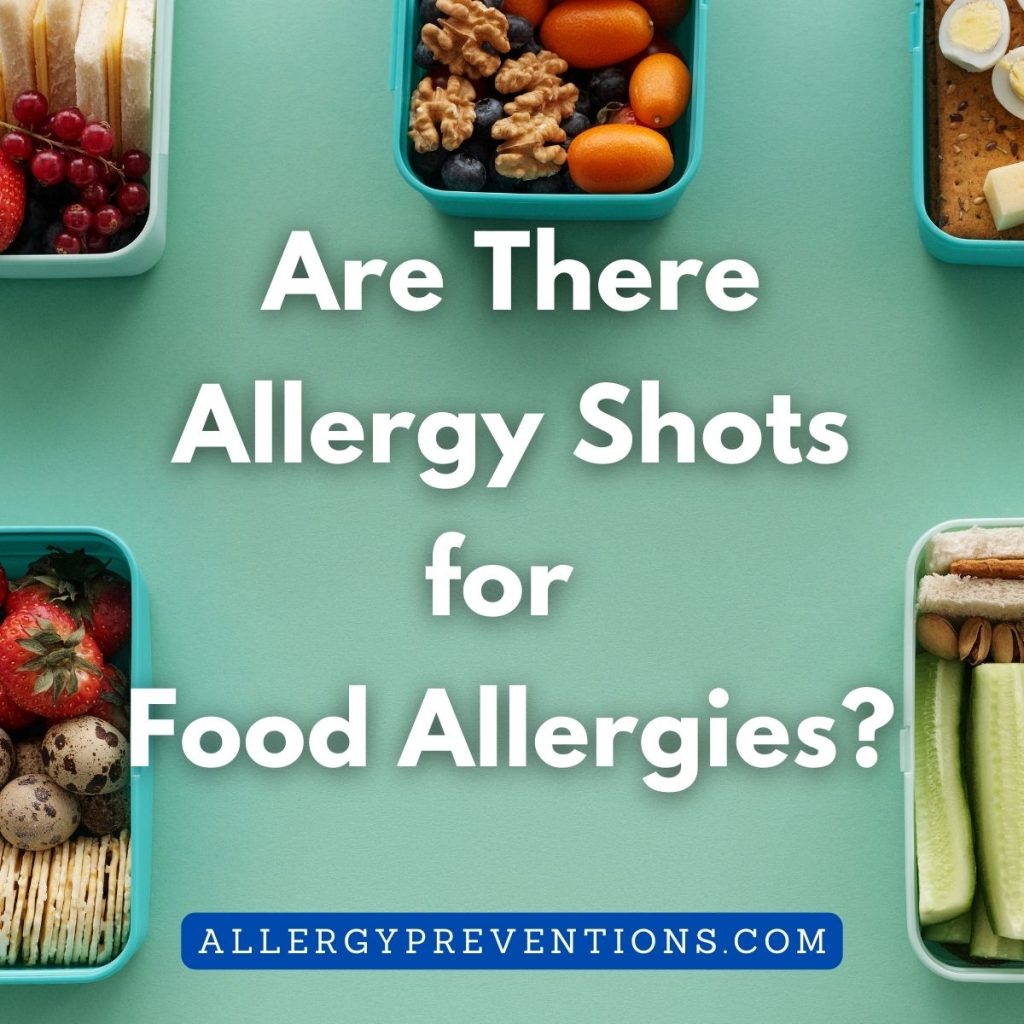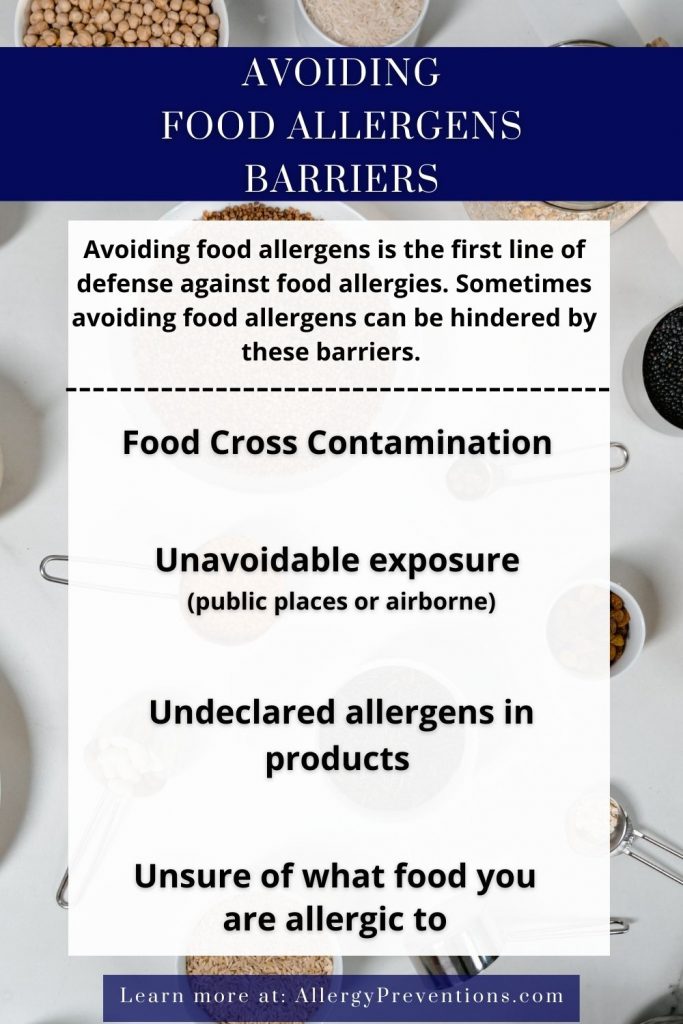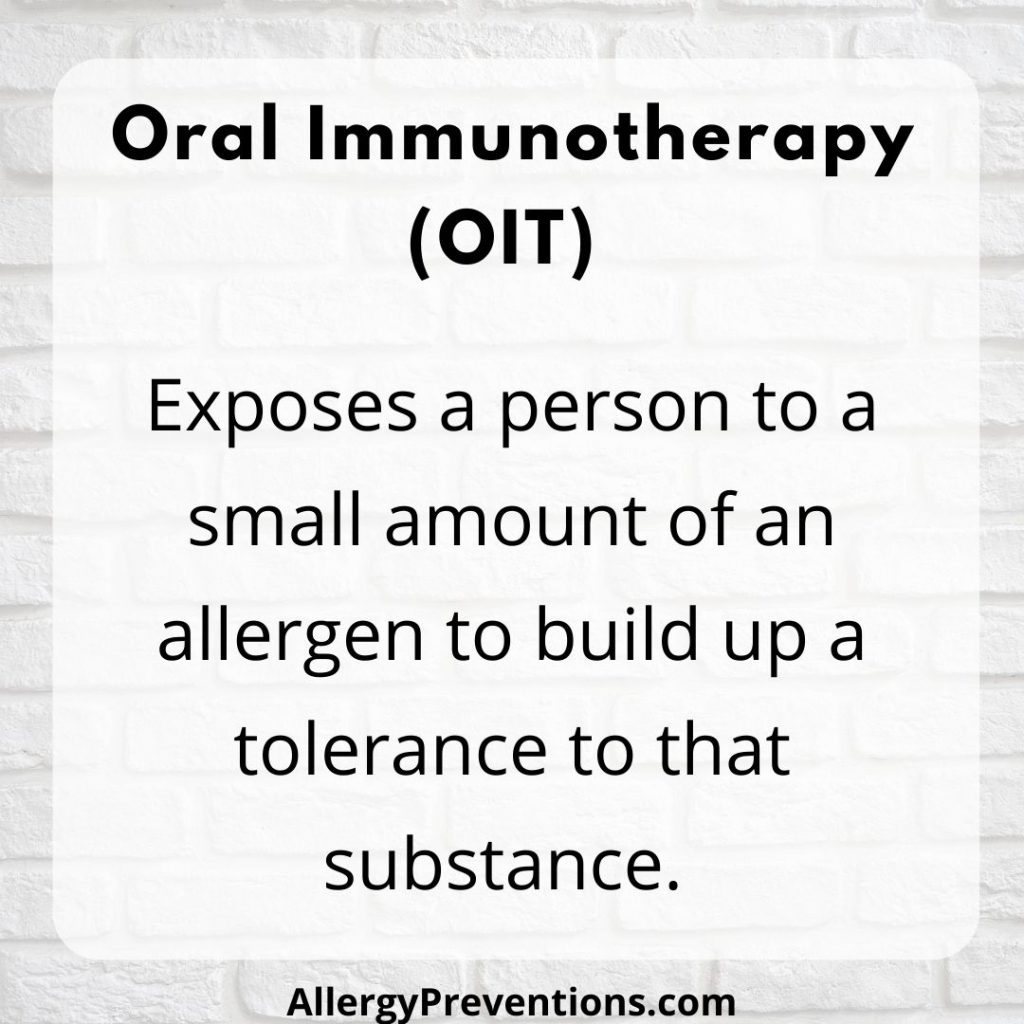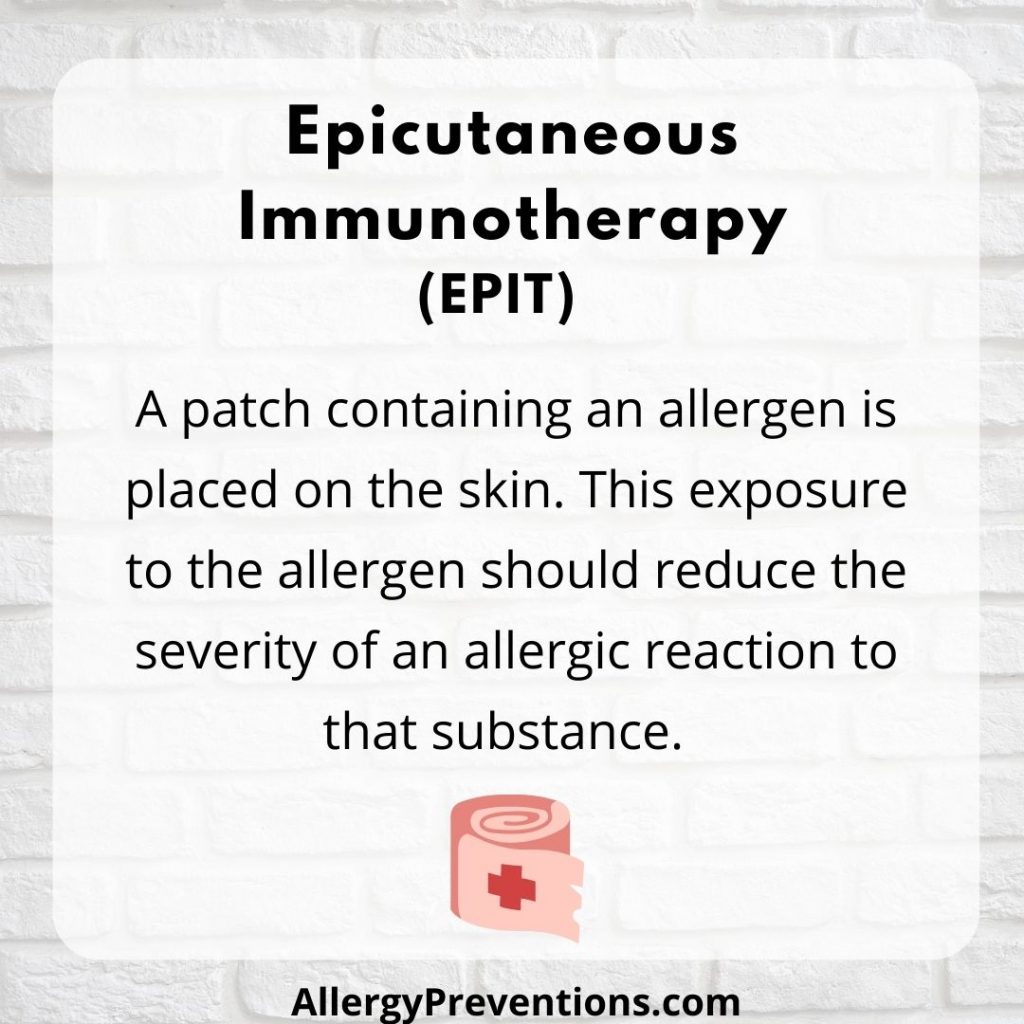No. Unfortunately, at this time there are no allergy shots for food allergies. However, there are treatments and some medical trials that may help you cope with food allergies a bit easier. We will discuss the different treatments available for food allergies and how they can help you live a normal, healthy life!

Is there immunotherapy for food allergies?
Not yet, but hopefully soon! Allergy immunotherapy is currently being studied as a potential treatment for food allergies. Allergy shots are the most common form of immunotherapy, and they work by exposing a person to small amounts of the allergen they are allergic to. Over time, this exposure can help reduce the severity of an allergic reaction.
Hopefully in the near future science will be able to use allergy shots for food allergies as well.
Can I keep eating foods I am allergic to?
Continuing to eat foods that you are allergic to is not recommended, and can make your symptoms much worse. There have been cases where individuals kept eating food that they had an allergy to and it not only made their symptoms worse, but they developed additional food allergies that they did not have before.
Treatments for food allergies
There is no cure for food allergies, and there are no allergy shots specifically for food allergies as of yet. However, there are treatments that can help manage the symptoms.
Avoidance
The most common treatment is to avoid the food that triggers the reaction. This may be difficult, especially if you are not sure which foods trigger the reaction. Even if you do know your allergen triggers, there are still other barriers you will need to consider.
Avoiding Food Allergens Barriers

- Food cross contamination
- Unavoidable exposure (public places/airborne)
- Undeclared allergens in products
- Unsure of what food you are allergic to
Medications
There are also medications that can help lessen symptoms, such as antihistamines and epinephrine (emergency use). Talk with a medical provider to discuss options.
Antihistamines
Antihistamines can block the effects of histamine, a chemical released by the immune system during an allergic reaction, and can relieve symptoms like itching, swelling, and hives. These medications are often available over-the-counter and are a common first-line treatment for mild to moderate allergic reactions.
Epinephrine
In more severe cases, epinephrine is the treatment of choice. It works by constricting blood vessels, relaxing the muscles in the airways, and increasing heart rate, all of which can reverse the symptoms of anaphylaxis.
Epinephrine is available in the form of an auto-injector, which can be self-administered by people with a known history of severe allergic reactions.
Corticosteroids & Leukotriene Inhibitors
Other medications that may be used to manage food allergies include corticosteroids, which reduce inflammation, and leukotriene inhibitors, which block the production of certain chemicals that contribute to allergic reactions. However, these medications are not typically used as first-line treatments for food allergies.
Clinical Trials
There are some treatments that are currently being studied, such as oral immunotherapy (OIT) and epicutaneous immunotherapy (EPIT) for the treatment of food allergies.
Oral immunotherapy for food allergies

Oral Immunotherapy (OIT) is when a person is exposed to small, increasing amounts of the allergen they are allergic to. The goal is to build up a tolerance so that if the person accidentally ingests the food, they will have a less severe reaction.
Epicutaneous immunotherapy for food allergies

Epicutaneous immunotherapy (EPIT) is when a person is exposed to small amounts of the allergen through their skin. A patch is placed on the skin that contains the allergen, and over time this exposure can help reduce the severity of an allergic reaction.
While these treatments may help, they are not available for everyone and have some risks associated with them. It is important to talk to your doctor about the best treatment option for you.
Final Thoughts
There aren’t allergy shots for food just yet, but hopefully, we will see some medical breakthroughs soon. In the meantime, avoidance and antihistamines are our best bet.
What has helped with your food allergies? I’d love to hear your story! chris@allergypreventions.com

